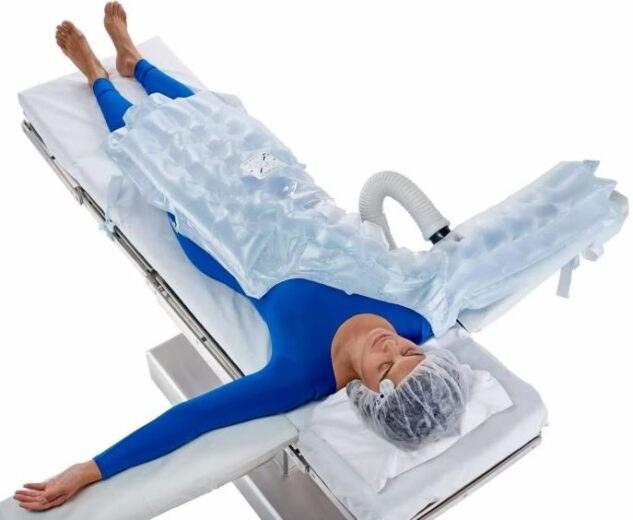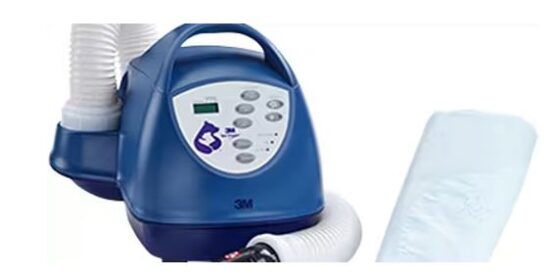What are the benefits of Bair Hugger in surgery?

For the alleviation of diseases, multiple treatments have been in use since the beginning of therapy. The utilization of drug substances, radiation, physiotherapy, as well as surgeries is the most commonly used methods among others. However, with recent advancements, the procedures have been updated to a certain degree so that their implementation has become easier and safer. One of these advancements has led to the designing and marketing of Bair Hugger warming blankets.
The Bair Hugger warming blankets are the warming systems that are used to maintain the body temperature of the patient while a surgical procedure is being conducted. These blankets were first developed by Dr. Scott D. Augustine in the 1980s. With the support of the FDA in the form of approval, the Bair Hugger normothermia blankets are now in the market since 1988.
How does a Bair Hugger warming system work?
The Bair Hugger warming system works on the principle of forced-air warming (FAW) i.e. it works by transforming the air in the surroundings into the warmed and filtered state which can then be used to warm the patient’s body. The system consists of a warming unit that is connected to a single-use blanket. The warm air is supplied by the warming system into the blanket which has the task of covering the patient’s body. This way, hypothermia can be prevented during surgery.

1
The Bair Hugger convective temperature warming system with a blanket
Types of Bair Hugger warming unit
The Bair Hugger warming systems are of multiple types including:
- 3M Bair Hugger Model 505 warming unit
- 3M Bair Hugger Model 750 warming unit
- 3M Bair Hugger Model 775 warming unit
- 3M Bair Hugger Model 241 blood/fluid warming set

2
Different types of Bair Hugger blankets
How to use a Bair Hugger system?
The Bair Hugger warming system can be used in the following way:
- The patients must be kept lying straight.
- The Bair Hugger blanket is opened and stretched over the patient’s body in such a way that it covers the area intended to be warmed.
- Once put in place, the Bair Hugger blanket is connected to the warming system which works by obtaining the air from the environment and warming it. The air is also filtered to avoid the chances of transferring the infection to the patient during its application.

3
Air circulation from a Bair Hugger warming blanket
- Certain points on the blanket prevent the specific burnt or bruised areas on the skin from warming.
- Warmed fluid can also be passed into the Bair Hugger blanket to maintain the patient’s body temperature while minimizing the chances of burning.
- Once the user has completed, the Bair Hugger warming blanket is discarded.
Benefits of Bair Hugger system in surgeries
The Bair Hugger warming system, along with its single-use blankets, is a highly beneficial option for the management of the body temperature of the patient during surgery. The following factors have rendered the Bair Hugger system a superior product to the other available warming systems:
- The Bair Hugger warming system finds extensive applications in preventing hypothermia in preoperative, intraoperative, as well as postoperative surgical conditions i.e. orthopedic surgeries, etc. as it increases the blood flow to certain body parts.
- The risk of fluctuations in the patient’s core body temperature always lingers during surgeries. This problem can be controlled by the use of the Bair Hugger warming system as it can maintain a constant temperature over long periods of time.
- The Bair Hugger warming system is advantageous to use as it can provide a varying range of temperature options. The lowest possible temperature is 32°C while it can be elevated according to the requirements up to medium i.e. 38°C or high i.e. 43°C.
- The Bair Hugger blankets, being disposable as well as inexpensive, are useful in preventing the chance of the transmission of an infection from one patient to the other.
Side effects of using the Bair Hugger warming system
The Bair Hugger system, if not used appropriately, can cause serious side effects in patients. Some of these have been enlisted below:
- The Bair Hugger blankets, if used for prolonged periods of time, can result in the softening of the body tissues. The most pronounced effects have been noticed in the tracheal tube.
- The Bair Hugger warming blankets have the disadvantage of causing first and second-degree burns. However, if the blankets are used under monitored temperature for an appropriate time limit, these burns can be avoided.
- One of the major side effects of using Bair Hugger blankets is the transmission of infections to the patient. Although the Bair Hugger warming system does have a HEPA filter fixed in it which filters the air prior to its warming, some of the contaminants can still pass from the filter and cause infections in the patients. To avoid this, it is necessary to change the HEPA filters after every 500 hours of use or after every 12 months.
Limitations of the Bair Hugger warming system
Despite having vast applications in surgical procedures, the use of the Bair Hugger warming system must be avoided in the following conditions:
- The Bair Hugger warming system is limited to be used in the unsterile environment i.e. the system does not have an application if a sterile warming option is needed.
- In the case of aortic cross-clamping, the Bair Hugger system should not be used to warm the lower extremities.
Conclusion
The surgical procedures being conducted for various reasons are a common way of therapy today. During this everyday practice, the need to protect the patient against hypothermia is significant. To solve the problem, the Bair Hugger warming system has been introduced. It is an easy, inexpensive, and relatively safer way of maintaining the patient’s body temperature during or after surgery thus rendering it a preferable option for physicians.


















